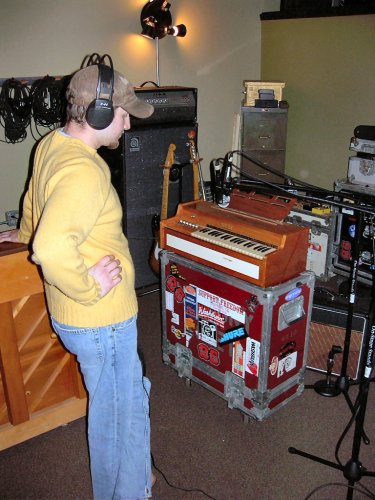5 tips for practicing and developing your musical hearing
Although history knows a certain famous composer who wrote impeccable music while deaf, his hearing was perfect for many years before an unfortunate disease robbed him of it. So good, in fact, that he could keep on hearing music in his head and write it out for other musicians to play, despite not being able to hear it performed.
Point is, to write beautiful music, you need a good set of ears. But don’t worry if you aren’t born with perfect pitch, or even the ability to discern basic tonality. It can be learned, and with enough time spent going at it, anyone can develop a reasonably good relative hearing that will carry them for an entire musical career!
Drooble users shared five top-notch tips for ear training that you may have not thought of yet. We think you will find them useful and engaging, so check them out and head to the community thread to contribute some of your own.
1. Do ear recognition routines
Asen Mihailov suggests to spend some time every day recognizing up to 30 chords, intervals, and progressions by ear. You can do this routine in all ways imaginable. Play some stuff on the guitar or piano and try to recognize what it is, preferably not looking at the fretboard or keys. Use music training software or exercise that you can find online. Ask your music teacher for ear training routines. There’s plenty of choice to consider!
2. Tune your guitar using a camertone or the piano
Artem Bemba proposes tuning your guitar using a camertone instead of an electronic tuner. This way, you will have to match the guitar string’s pitch to that of the camertone, then go about matching all the other strings. You can also do this with a piano. Just make sure you are playing the right octave, or you may end up tuning your guitar too low or high, instead of nailing E Standard. The result is you will ingrain the guitar string pitches in your hearing and be able to recognize them in songs.
3. Use ear training apps
Jocelyn Blake advices getting some apps with ear training exercises and games for your phone, tablet, and computer. This way, keeping your ears sharp can be done everywhere, as long as it’s quiet or the occasion allows for wearing headphones. The choice of apps is vast, but simply type ‘ear training’ into your phone’s app store or in a search engine, and you will find some that will do just fine in no time.
4. Sing and record yourself
To improve your singing is to improve your pitch. Hamdi Barouni says to do some vocal exercises or singing while recording yourself – so you train your ears while singing and know what you really sound like to other people. Nice!
5. Sing harmony in different pitches
Continuing with singing, Eduardo Maestro goes back to vocal training boot camp – sing harmonies in different pitches and intervals. Hear music in your head and try to sing it on the spot. If you can’t get a handle on it at first, start with very simple melodies and intervals like 3rds and 6ths that are easily recognizable. You will be able to improve quickly and tackle more challenging material – like Alice In Chains songs!




